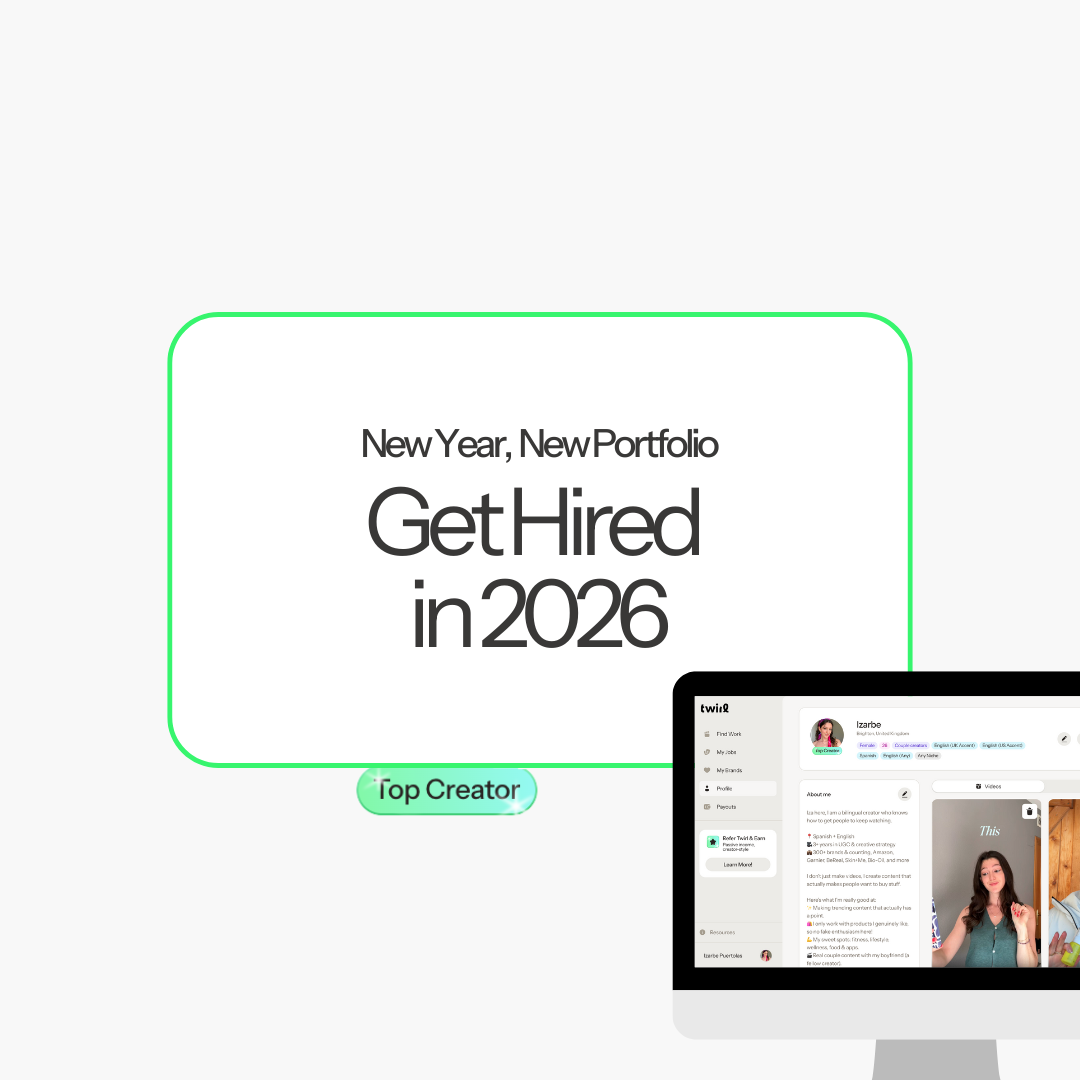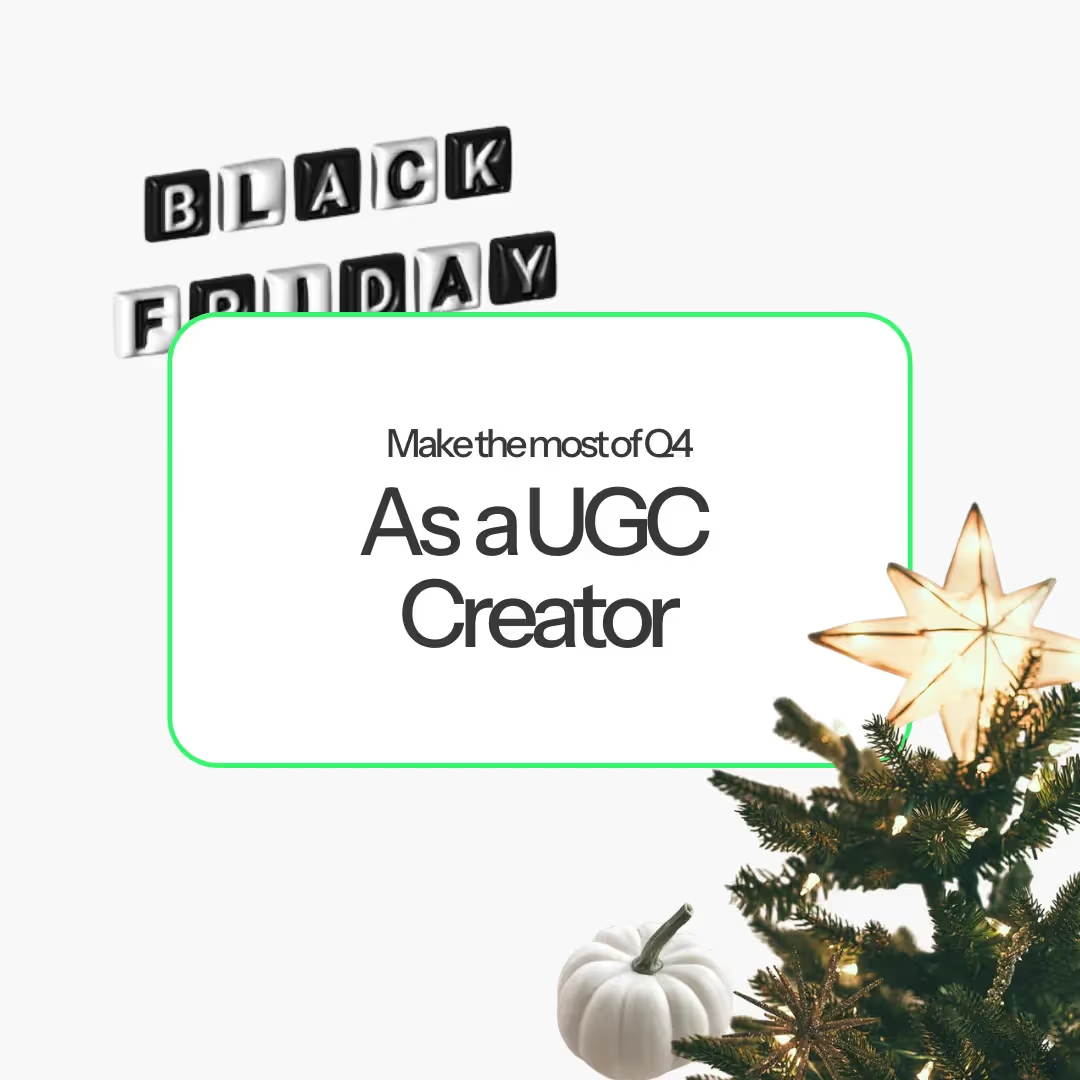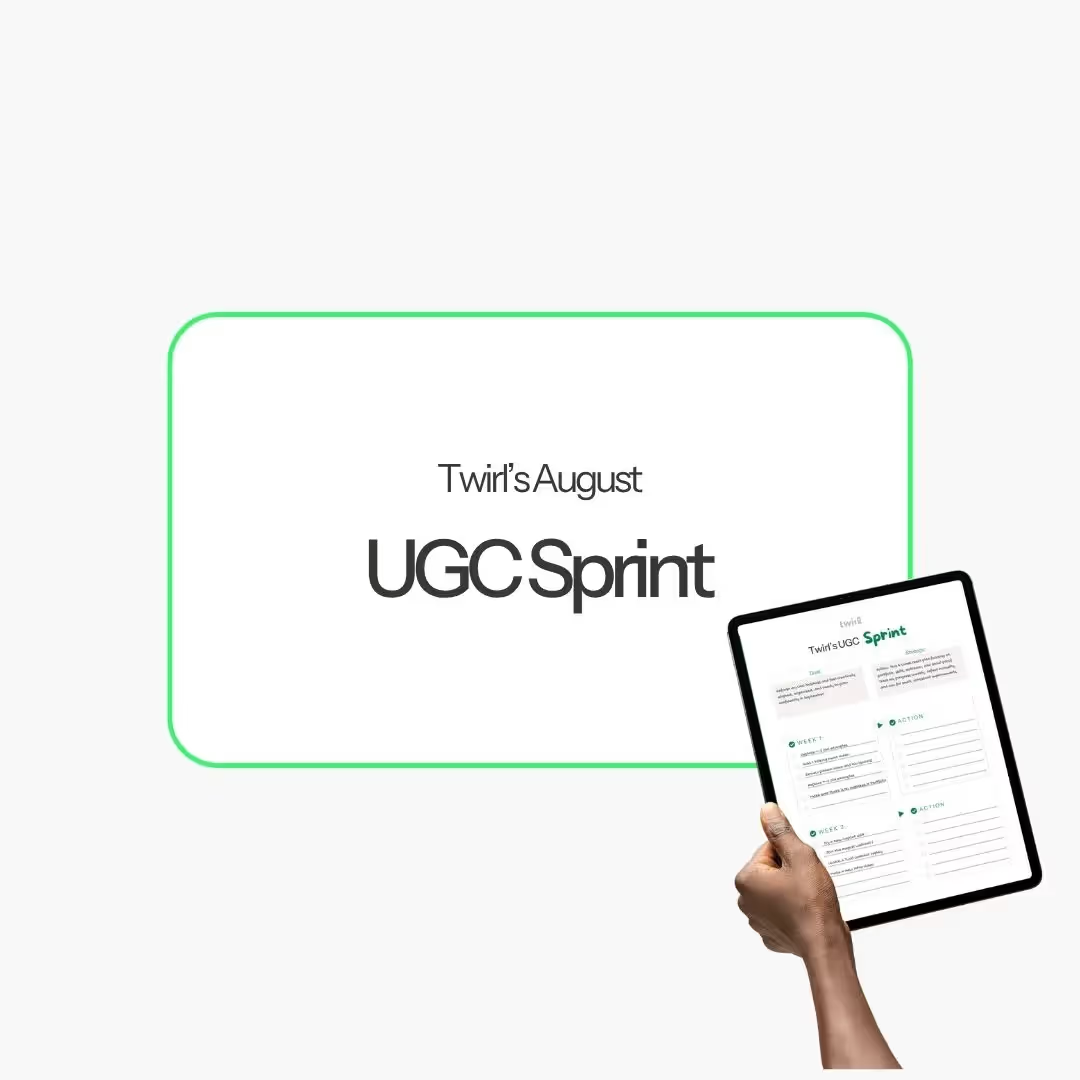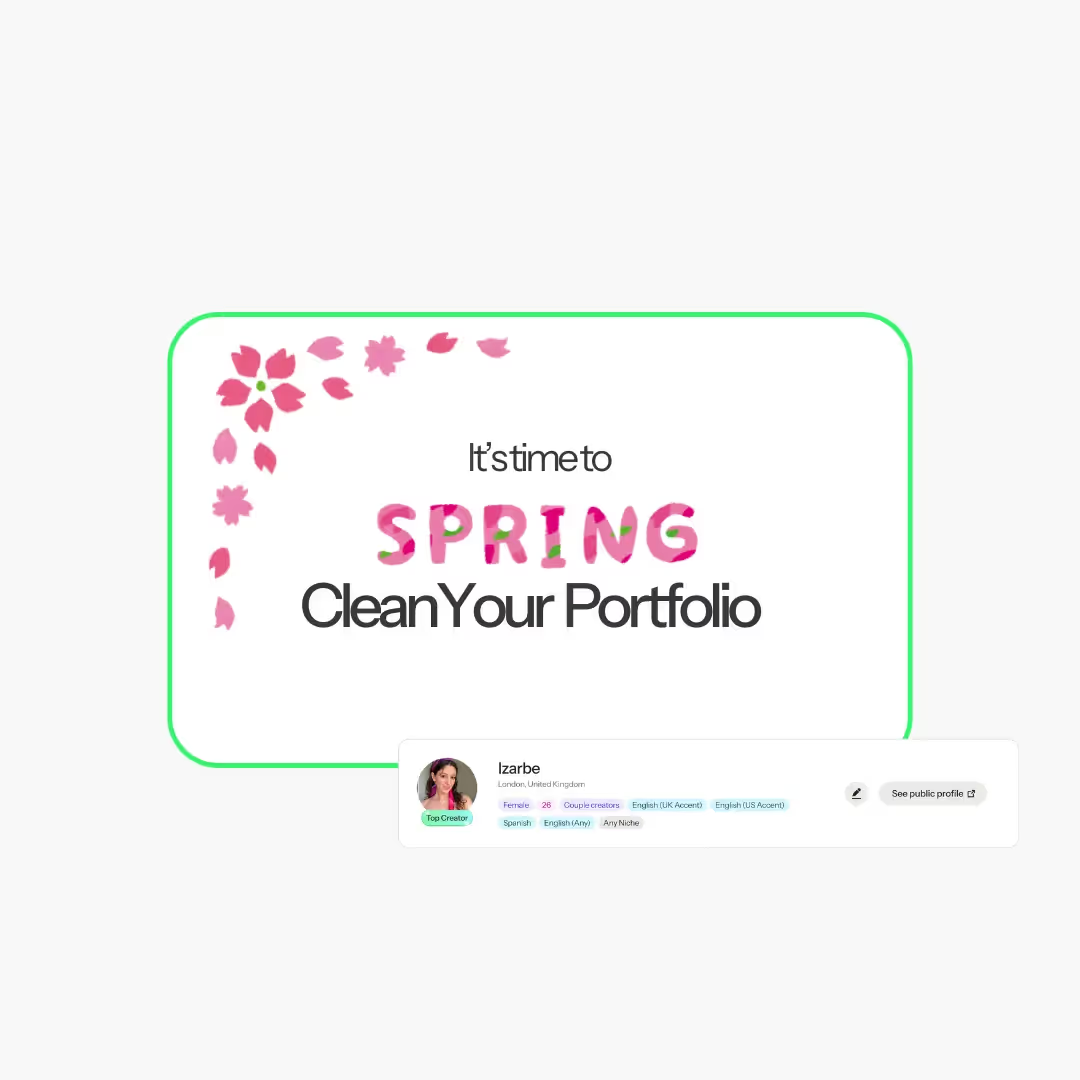Mastering the Legal Side of UGC: Essential Tips for Content Creators
.avif)
Hey Twirl Creators!✨
Navigating the legal landscape of User-Generated Content (UGC) can feel overwhelming, but it’s essential for protecting your rights, ensuring successful collaborations, and maximizing your earning potential with brands. Whether you’re just starting out or are an experienced creator, understanding key legal areas can empower you to produce confidently and safeguard your creative work. Here’s a breakdown of the essential areas to consider:
1. Usage Rights and Content Ownership
One of the first steps in creating a strong foundation for brand partnerships is knowing your rights regarding content usage and ownership.
📜 Defining Usage Rights
Usage rights define where, how, and for how long a brand can use your content. Be cautious with terms like "perpetuity," which gives brands indefinite use rights. Clarifying these details upfront helps avoid unexpected surprises.
💸 Paid vs. Organic Usage
Understanding the difference between paid and organic usage is key to setting fair rates. Paid usage involves brands using your content in ads, amplifying visibility, and increasing their ROI—this should come with a higher fee. Organic usage, on the other hand, refers to sharing content without paid promotion, usually for brand channels only.
🔄 License vs. Assignment
Decide whether to retain ownership through a license or fully transfer rights through an assignment. A license allows you to keep control while granting the brand specific usage permissions. An assignment, often accompanied by a higher fee, transfers ownership entirely to the brand, so they hold the rights indefinitely.
2. Liabilities and Indemnities: Safeguarding Your Content
Liability clauses outline who is responsible if things go wrong, while indemnities can impact you financially.
⚖️ Clarifying Liability
Limit your liability for elements outside your control, such as third-party copyright issues. For example, if a brand requests specific music that leads to copyright infringements, they should cover the risk.
💳 Negotiating Indemnities
Indemnity clauses often mean you agree to cover potential costs or damages for the brand, which can be costly. These clauses can be one-sided, so be sure to negotiate them to limit your exposure to unexpected liabilities.
3. Setting Clear Responsibilities and Expectations
Defined responsibilities help ensure a smooth collaboration and prevent misunderstandings.
✍️ Revisions and Approval Processes
Unlimited revisions can drain your time and resources, so set a clear limit on revisions and establish timelines for brand approvals. This keeps your project within scope and allows you to maintain control over your creative vision.
📝 Clear, Defined Agreements
An effective contract should cover essential details:
- Scope of work
- Deadlines
- Revision limits
- Approval processes
A clear agreement helps align expectations and minimizes potential conflicts, fostering a smoother partnership.
4. Protecting Your Professional Reputation
Your reputation is invaluable. Build in contractual protections to shield it.
🛡️ Mutual Protection Clauses
Include clauses allowing you to disassociate from a brand if they engage in controversial or damaging activities. This way, if the brand faces negative press or a scandal, you can request content removal to protect your image.
💼 Reputation-Safe Clauses
Consider adding clauses that:
- Allow disassociation if the brand’s actions could harm your reputation
- Restrict the use of your content in contexts that could damage your image
These safeguards help maintain your professional integrity and control over how your content and name are represented.
Conclusion: Protect Your Creativity and Collaborate with Confidence
Understanding the legal aspects of UGC creation can be challenging, but prioritizing these key areas—usage rights, liabilities, responsibilities, and reputation protection—empowers you to work confidently with brands while securing your rights.
For tailored legal advice, reach out at kiera@krewco.com. I’m here to help you navigate these legal waters, so you can focus on what you do best: creating engaging, impactful content!
Your creativity is your asset—let’s ensure it’s protected. ✨






.svg)
.svg)